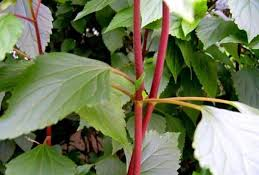These days, people can travel easily.
现在,人们可以轻易旅行至其他地方。
But that means plants, animals and germs can travel easily, too.
不过,这表示植物、动物和细菌也能够轻易前往其他地方。
Living things from foreign countries can be dangerous.
来自外国的生物可能很危险。
They can hurt a country's native plants and animals.
他们有可能伤害一个国家的原生植物和动物。
So countries must protect themselves.
所以,每个国家必须保护自己。
When people go into a country, they go through customs.
一般人进入一个国家的时候,都必须通过海关。
Customs officers check their bags. They ask people about food.
海关官员会检查他们的袋子,问他们有没有携带食物。
People cannot bring any fruit or meat into the country.
一般人不能带水果或肉类进入一个国家。
Some travelers don't like these rules. They want to bring food home with them.
有些旅行者不喜欢这类规则。他们想把食物带回家乡。

They think a little fruit or meat can't hurt anything. But germs can spread quickly.
他们认为一点水果和肉类不会造成任何伤害。但细菌有可能散播得非常快。
Then they can hurt a country's farms.
如此一来,就可能对一个国家的农场和农作物造成伤害。
So people should obey the rules.
所以,大家都应该遵守规则。
If people want to bring in food products, they should ask customs.
如果有人想带食物产品入境,就应该询问海关。
Plants and seeds are also a problem.
植物和种子也是个问题。
Non-native plants can hurt native plants.
非原生种的植物有可能对原生植物造成伤害。
Some non-native plants will grow very quickly and spread fast.
有些非原生植物生长的速度非常快,扩散的速度也很快。
They can kill the native plants. That can hurt the animals that eat those native plants.
这些植物可能会杀死原生植物。就可能对吃这些原生植物的动物造成伤害。
Bringing non-native plants and animals into a country is never a good idea.
把非原生植物与动物带进一个国家绝对不是好主意。
It is important to be careful when you travel.
旅行的时候一定要小心。












